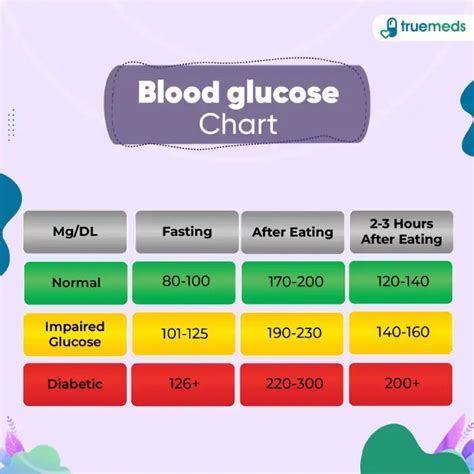What Are Normal Blood Sugar Units? Easy Management Tips

Understanding blood sugar levels is crucial for maintaining good health, especially for individuals living with diabetes. Normal blood sugar levels vary throughout the day, depending on various factors such as the time of day, the types of food consumed, and the individual’s physical activity level. Blood sugar levels are typically measured in milligrams per deciliter (mg/dL) in the United States and in millimoles per liter (mmol/L) in most other countries.
Normal Blood Sugar Ranges
For individuals without diabetes, normal blood sugar levels are usually between 70 and 140 mg/dL (3.9 to 7.8 mmol/L) throughout the day. These levels can fluctuate based on when a person last ate and the composition of their meals.
- Fasting Blood Sugar: The normal range for fasting blood sugar (after not eating for at least 8 hours) is between 70 to 99 mg/dL (3.9 to 5.5 mmol/L).
- After Eating (Postprandial): Two hours after eating, blood sugar levels should be less than 140 mg/dL (7.8 mmol/L) for people without diabetes.
Managing Blood Sugar Levels
Effective management of blood sugar levels involves a combination of dietary changes, physical activity, and, for some, medication. Here are some tips to help manage blood sugar levels:
Dietary Adjustments: Focus on consuming a balanced diet that is rich in whole foods, such as vegetables, fruits, lean proteins, and whole grains. These foods are not only nutritious but also tend to have a lower glycemic index, meaning they cause a slower and more gradual increase in blood sugar levels.
Regular Physical Activity: Exercise is a crucial component of blood sugar management. Physical activity helps the body use insulin more efficiently, which can lower blood sugar levels. Aim for at least 150 minutes of moderate-intensity aerobic exercise, or 75 minutes of vigorous-intensity aerobic activity, or a combination of both, per week.
Stay Hydrated: Drinking enough water helps the body regulate blood sugar levels and can also reduce the risk of diabetes complications. Aim for at least 8 cups (64 ounces) of water per day.
Get Enough Sleep: Poor sleep can disrupt hormones that regulate hunger and fullness, leading to increased cravings for unhealthy foods, which can negatively affect blood sugar levels. Aim for 7-8 hours of sleep per night.
Manage Stress: Chronic stress can increase cortisol levels, which can cause an increase in blood sugar levels. Engage in stress-reducing activities such as meditation, yoga, or deep breathing exercises.
Monitor Blood Sugar Levels: Regular monitoring of blood sugar levels can provide valuable insights into how different foods, activities, and medications affect blood sugar. This can help in making informed decisions about diet and lifestyle.
Conclusion
Maintaining normal blood sugar levels is key to preventing the complications associated with diabetes and ensuring overall good health. By understanding what constitutes normal blood sugar levels and implementing simple management tips, individuals can take proactive steps towards better health outcomes. Whether you’re living with diabetes or seeking to prevent it, adopting a healthy lifestyle that includes a balanced diet, regular physical activity, adequate hydration, sufficient sleep, and effective stress management can make a significant difference in your ability to manage blood sugar levels effectively.
What is the normal range for blood sugar after eating?
+The normal range for blood sugar two hours after eating is less than 140 mg/dL for people without diabetes. However, this can vary based on the individual and the specific meal consumed.
How does exercise affect blood sugar levels?
+Exercise helps the body use insulin more efficiently, which can lower blood sugar levels. Regular physical activity is a crucial component of managing diabetes and preventing its complications.
What role does diet play in managing blood sugar levels?
+A balanced diet that includes whole foods like vegetables, fruits, lean proteins, and whole grains can help manage blood sugar levels. These foods are rich in nutrients and have a lower glycemic index, causing a slower increase in blood sugar.


